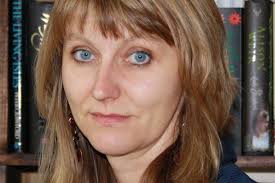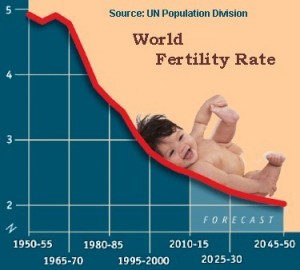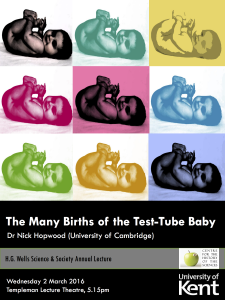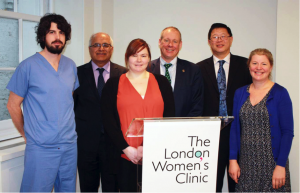Professor of Law, Sally Sheldon has been awarded more than £0.5m to conduct a unique two-year biographical study of the Abortion Act.

The grant of £512,000 has been awarded by the Arts and Humanities Research Council (AHRC) to Professor Sheldon for a research project called ‘The Abortion Act (1967): a Biography’. The project will begin in May 2016 and its findings will be launched at the Houses of Parliament on 27 April 2018, the fiftieth anniversary of the Abortion Act coming into force.
Professor Sheldon said: ‘This project offers a historical study and biography of the Abortion Act, taking seriously the idea of ‘living law’: law exists only in its interpretation and while the text of the Abortion Act has changed little since 1967, its interpretation has evolved significantly.’
The project will draw on extensive archival research (some of which has only recently come into the public domain), around 20 interviews with people who have extensive experience of working with the Act, and library research.
The project has two methodologically innovative features; the application of biographical methodologies to the study of statute; and the application of comparative methodologies to the study of the same law as interpreted within the countries that make up the UK.
Professor Sheldon will be working with Dr Gayle Davis (Co-Investigator), a senior lecturer in the School of History, Classics and Archaeology at Edinburgh. The team also includes two postdoctoral researchers; Jane O’Neill, who is currently finishing a PhD at Edinburgh and the second, yet to be appointed, will be based at Kent (apply online by 7 February 2016).
Intended project outcomes include a book; a range of academic articles in law, history, sociology and gender studies journals; a series of shorter papers for practitioner journals; at least nine conference papers; teaching packs for schools; and active dissemination of research via the media and social networking sites.
A project website will be a key reference point which will provide copies of all publications, further reading, links to further resources, and a special section with resources for schools. The website will also host an engaging online exhibition, accessible to a wide audience and bringing together key findings, extracts from the oral histories and key documents from the archives.
Professor Sheldon said: ‘The Act has clearly lived through interesting times and, in line with the best biographies, this account of its life will aim also to offer a window into the seismic broader changes that have occurred since 1967. In this sense, the story of the Abortion Act is also the story of evolving ideas of gender and family; the development of the NHS; changes to abortion technologies and the ethical values that inform modern medicine; shifting demographics, including in the religious and ethnic make-up of the UK; and the ongoing negotiation of the UK constitutional settlement.
‘My hope is that the project will offer a far more detailed understanding of the operation of the Abortion Act in historical and geographical contexts. We also hope that a close study of the Abortion Act can offer a window into the times in which it ‘lived’. And I would hope also to show that the use of biographical methodologies can offer something of value to other legal scholars, who work in very different areas of law and, likewise, that one can usefully apply comparative methodologies for studying how the same piece of law operates across borders within the UK.’
Professor Sheldon teaches Health Care Law and Ethics to undergraduate and postgraduate students at Kent Law School. She is a leading expert and commentator on the regulation of abortion in the UK and contributed to a discussion about the decriminalisation of abortion at the House of Commons in October 2014. She is Deputy Director of Kent’s Centre for Interdisciplinary Studies of Reproduction (CISOR).
Professor Sheldon has published widely in the area of health care ethics and law with books including Beyond Control: Medical Power and Abortion Law, a co-edited collection of essays on Feminist Perspectives on Health Care Law and a socio-legal study of fatherhood called Fragmenting Fatherhood, co-authored with Richard Collier of Newcastle Law School. Her current research, which centres on the legal implications of abortion pills, is supported by an AHRC fellowship.



